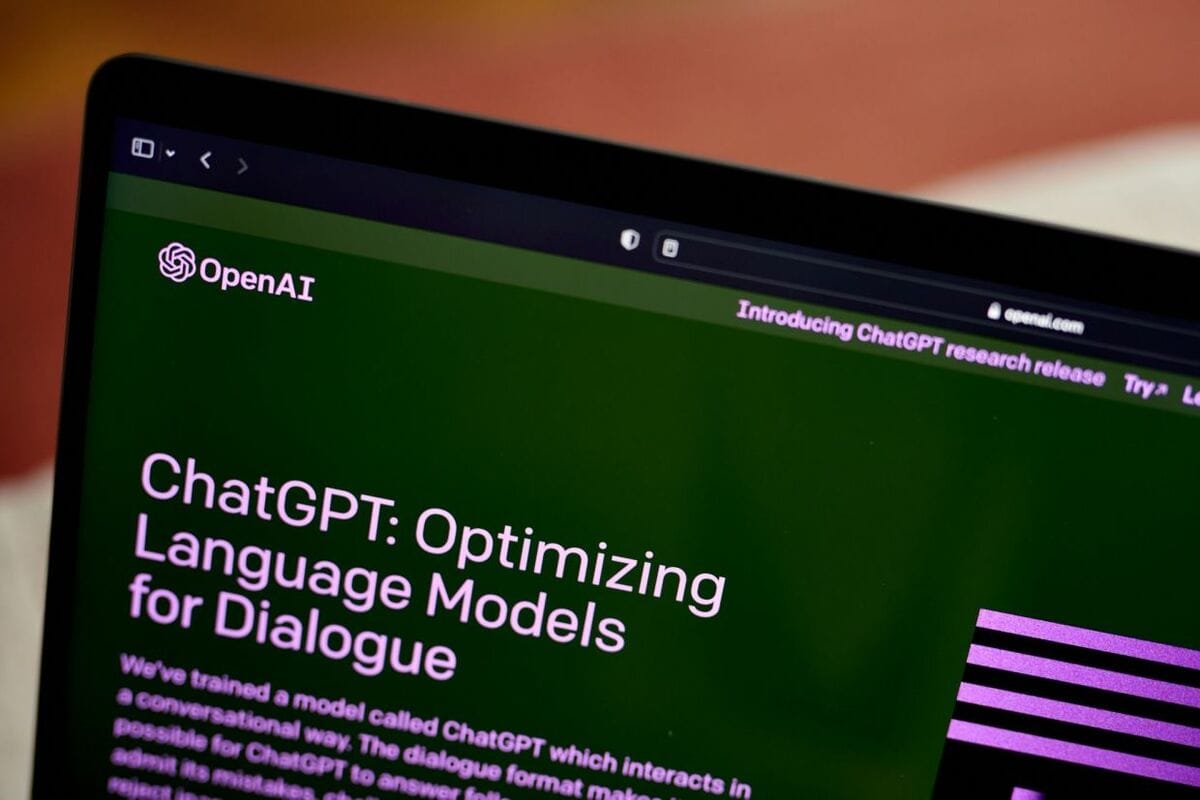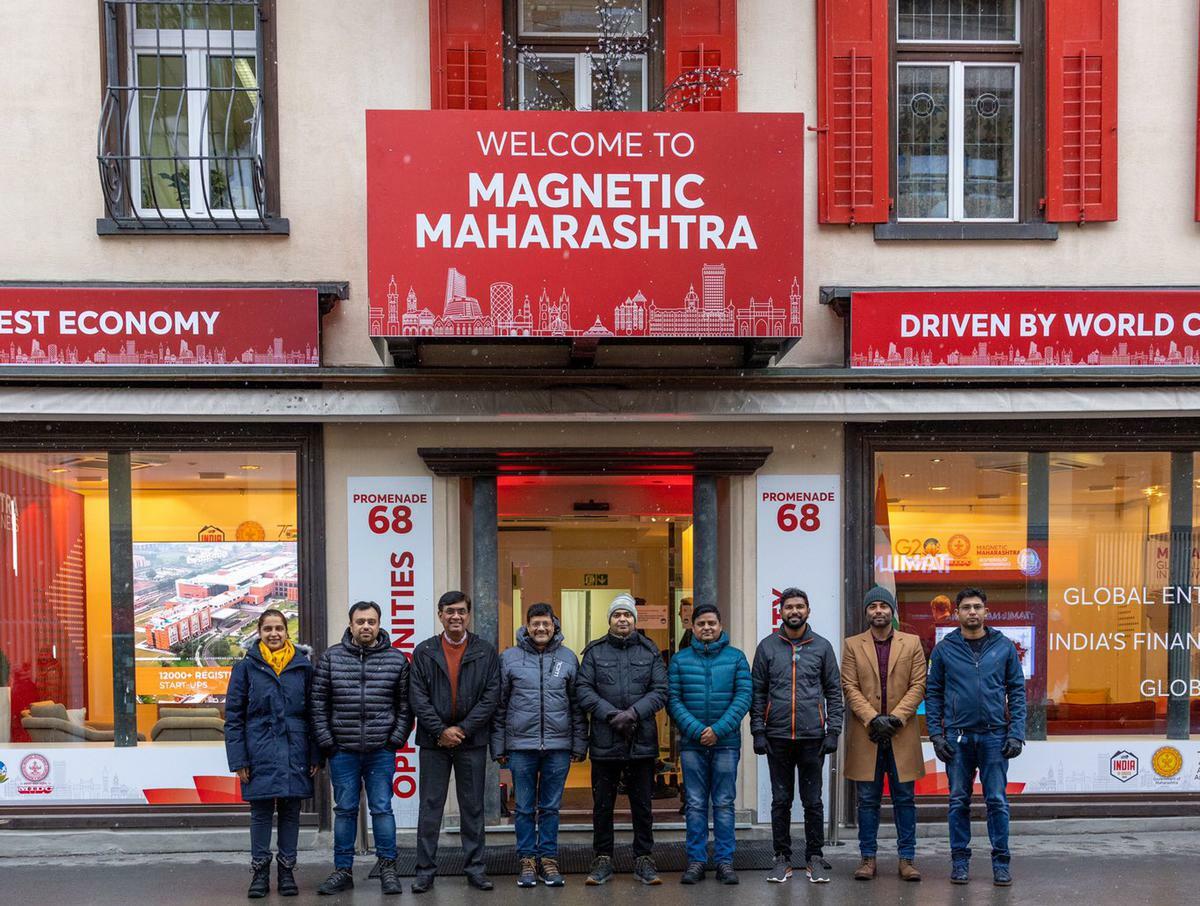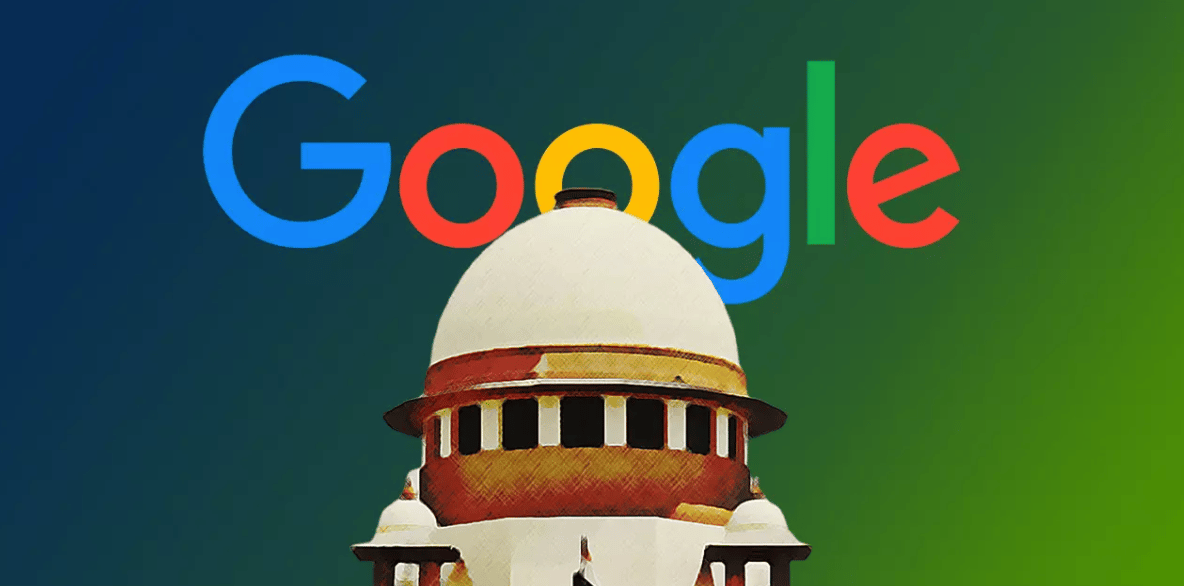- The FinOak
- Posts
- Maharashtra in Davos, Switzerland!
Maharashtra in Davos, Switzerland!
Maharashtra in Davos, Switzerland!

Hello, FinOak readers! Let us ask you all something, are you afraid that ChatGPT will take your job? Well, we are of different view, we believe that if leveraged properly AI can help everyone to work more efficiently and effectively. We start this newsletter by covering what is ChatGPT and Microsoft's plan to invest in it. Next, read on how Maharashtra ended up in Davos, Swiss Alps bringing closer the vision to make India a 5 trillion-dollar economy. Lastly, read about Google VS CCI case.In Personal Finance column, we have compared two different types of loan (Personal Loan vs. loan against Provident Funds) and tried to map which loan is suitable pertaining to different financial situations and goals.
Column 1
Weekly Wrap Up
In today’s Edition
Will ChatGPT be a game changer? Microsoft shows interest to invest
WEF × MUMBAI: Towards a Magnetic Maharashtra
Google VS CCI case: 2023, A crooked start for Google?
1.
Will ChatGPT be a game changer?Microsoft shows interest to invest

What is ChatGPT?
ChatGPT is like a chatbot that is powered by vast amounts of data and computing techniques which let it form predictions about stringing words together in a meaningful way. They not only tap into a vast amount of vocabulary and information, but also understand words in context. This helps them mimic speech patterns while dispatching an encyclopedic knowledge.
With ChatGPT, users can ask questions or share stories, and the bot will answer with relevant, natural-sounding answers and topics. In order to stimulate natural interaction with the bot, the user interface is created to mimic a human conversation.
Who created ChatGPT?
OpenAI, a San Francisco-based AI and research company, launched ChatGPT on November 30, 2022. OpenAI also created Whisper, an automatic speech recognition system, and DALLE•2, a popular AI image and art generator.
How Can You Use ChatGPT?
ChatGPT can be used for a variety of applications, including customer service, online shopping, hiring and training staff, streamlining operations, and providing more personalized customer experiences.
ChatGPT can also be used to create interactive storytelling experiences, allowing users to explore and learn from virtual worlds.
Some ways for which ChatGPT can be used:
● Generating responses in a chatbot or virtual assistant, to provide more natural and engaging interactions with users
● Brainstorming content ideas on keywords or topics● Creating personalized communication, such as email responses or product recommendations● Creating marketing content like blog posts or social media updates● Translating text from one language to another● Recapping long documents by providing the full text and asking ChatGPT to generate a shorter summary● Using chatbot-generated answers to create automated customer service toolsChatGPT can be of great use if leveraged properly. People who are looking to dive into content creation can make a great use of ChatGPT for the extensive applications mentioned above.
How to Get Started With ChatGPT
ChatGPT is in beta right now and free to access for everyone. All you need to do is to visit
Chat.openai.com and sign up to create your account. It will then show you how to use it and provide examples of what you can do with it alongside helping you through the process of running your first queries.
Right now, ChatGPT is free to use — but the company admits they may need to monetize in the future to deal with “eye-watering” computation costs.
The Limitations of ChatGPT
ChatGPT is not without its limitations. Though it is a great AI-powered tool with vast applications, it can only provide answers based on the data it has been trained on. ChatGPT is not a search engine due to which it lacks the ability to search the internet for the information. This leaves room for error — so all output should be fact-checked for accuracy and timeliness.
As with all AI tools, all business leaders should be aware of the dangers of potential bias. If the data ChatGPT is trained on is biased, the answers the bot provides will be biased, as well. All companies need to be vigilant about monitoring output from the chatbot to ensure it is free of bias and offensive content.
Microsoft in talks to invest in ChatGPT
Microsoft is planning to invest $10 billion in OpenAI, the startup behind popular artificial intelligence tool ChatGPT, according to reports.The deal will be a part of a funding round with other investors involved that will give a valuation of $29 Billion to OpenAI.
It isn’t clear whether the deal has been finalised but term sheets sent to prospective investors indicated the plan was to close the deal by the end of 2022, according to reports. Microsoft will reportedly get a 75% share of OpenAI’s profits until it makes back the money on its investment, after which the company would assume a 49% stake in OpenAI.
Microsoft and OpenAI were not immediately available for comment on the matter. With this deal, Microsoft will be betting on ChatGPT to boost its efforts in web search which is currently dominated by Google.
2.
WEF × MUMBAI: Towards a Magnetic Maharashtra

The Maharashtra government has inked memorandums of understanding (MoUs) with an investment potential of Rs 1.36 lakh crores over the last two days at the World Economic Forum currently underway in Davos. The MoUs have an employment potential of over 55,000 jobs.
Following this kind of engagement,
Maharashtra has set up a big pavilion in Davos to represent the state and attract investments at the WEF 2023.
But Wait wait!
FinOak subscribers should know the story right from the beginning.
So, The World Economic Forum, mostly known for its Annual summit in Davos, Switzerland, is a non-governmental lobbying organization founded by economist Klaus Scwab.
Davos, a ski resort, and the annual host of WEF’s meeting is a quaint town located on the lap of the Swiss Alps. In many ways, it is a surprising choice for a meeting of global economic giants and geopolitical leaders.
Relaxed in its serene environs, it seeks to cut through the many distractions of global politics to succeed in its mission to create a more prosperous global economy.
Davos brings together some 3,000 paying members and selected participants – among whom are investors, business leaders, political leaders, economists, celebrities and journalists – for up to five days to discuss global issues across 500 sessions.
And that is what led to Maharashtra putting its breathtaking pavilion at Davos! The pavilion showcases the state’s achievements such as the Metro project, the Coastal Road project, Hinduhridaysamrat Balasaheb Thackeray Maharashtra Samruddhi Highway, the longest tunnel for the Mumbai-Pune missing link, use of electric vehicles in public transport, and steps taken for the protection of the environment
Mr. Eknath Shinde (CM of Mumbai) in Davos?
“A huge amount of investment plans have materialised for our State in these sectors, amounting to ₹1.36 lakh crore. In just two days, we have signed these many MoUs.”
The list of MoUs include the US-based New Era Cleantech Solution, Britain’s Varad Ferro Alloys, Israel’s Rajuri Steels and Alloys, Portugal’s Elite Plast Auto Systems. The state also garnered million dollar investment MOUs from Berkshire Hathaway and Greenko Energy Projects pvt ltd.
The magnet that is working for the state is an offer for good infrastructure, subsidies, single-window clearance and the huge economic growth potential.
To fulfill Prime Minister Narendra Modi's vision to make India a 5 trillion-dollar economy, Maharashtra is aiming to become a one-trillion-dollar economy and that is also helping our state attract investors. Our state is a big supporter and contributor to the overall GDP of the country. The state also garnered other bug names including Berkshire Hathaway and Greenko Energy Projects Pvt Ltd for billion dollar investments.
3. Google VS CCI Case: 2023, A Crooked start for Google?

In October 2022, the CCI fined Google Rs 1,337.76 crore for abusing its position in various Android phone markets. On 19th January 2023, the Supreme Court dismissed Google's appeal against the order of the Competition Commission of India (CCI). The company was fined 1,338 million rupees for abusing its dominant position in the Android market in India.
At its session, the Supreme Court also extended the execution time of the order of the technology giant TKT by a week. It also asked the National Company Law Appellate Tribunal (NCLAT) to decide the matter by 31st March 2023. The Supreme Court noted that at the current stage, they are not fully evaluating the matter because expressing an opinion would affect further proceedings. The court also pointed out that the conclusions of TsÜS cannot be considered as obviously erroneous at the stage of application of provisional measures. For the reasons mentioned above, the SC decided that they do not want to interfere with the January order of the NCLAT prohibiting implementation.
On 18th January 2023, the Supreme Court, comprising Chief Justice of India DY Chandrachud, Justices P S Narasimha, and Krishna Murari, initially considered sending the case to the NCLAT for review of the interim order. Additional Solicitor General (ASG) Venkatraman, on the other hand, argued that the case must be sent back to the Supreme Court on appeal.
Collegium controversy: What does the law minister's proposal mean?
The losing party before the NCLAT is likely to appeal the decision in the Supreme Court as the matter is of national importance and will be vigorously pursued, the ASG told the court. On January 16, the Bench observed that Google had created "developed urgency" in its stay plea by challenging the CCI order in the Android dispute at the last minute before the NCLAT. Additional Solicitor General of India N. Venkatraman, representing the CCI, told the SC hearing that Google appealed the CCI judgment to the NCLAT only in December - a day before the statute of limitations expired. He further said that Google is discriminating against EU and Indian customers, even though they have already followed similar EC directives in 2018.
The CCI in October (2022), fined Google Rs 1,337.76 crore for dominating Android, which powers 97 percent of smartphones in India; a key growth area for the American giant. In the October ruling, the CCI also ordered internet majors to cease and desist from various inappropriate business practices.
In January (2023), the NCLAT accepted Google's appeal against the CCI order but rejected its request for interim measures. Apart from the Rs 1,338 crore fine; the CCI ordered the IT giant to stop using inappropriate business practices. In addition, the competition watchdog asked Google to change its behavior within a deadline.
The regulation ordered Google not to force Original Equipment Manufacturers (OEMs) of smart-devices to pre-install their apps or prevent users from uninstalling such apps. In addition, the US company was ordered to refrain from offering incentives to OEMs to maintain exclusive rights to its search services.
In hindsight, the search engine giant claimed that part of the CCI order was plagiarized from the tender procedures of the European Union and that the order is "exceptional" and has "defects". In addition, Alphabet argued that the open system of Android would make phones more affordable; Android supports over 15,000 models from 1,100 OEMs.
Column 2
In today’s Edition
A Personal loan or a loan against Provident funds?
1. A Personal loan or a loan against Provident Funds?

In times of inflation and rising rates, it can be challenging to make a decision on whether to take out a personal loan or a loan against provident funds. Both options have their advantages and disadvantages, but ultimately, it depends on your individual financial situation and goals.
A personal loan is a type of unsecured loan that can be used for a variety of purposes, such as consolidating debt, financing a home renovation, or paying for a vacation. Personal loans are typically offered by banks and credit unions, and the amount you can borrow depends on your credit score and income.
One of the main advantages of a personal loan is that it can be easier to qualify for than other types of loans. If you have a good credit score and a steady income, you may be able to qualify for a personal loan with a relatively low interest rate. Additionally, personal loans can be a good option if you need to borrow a large amount of money.
However, personal loans also have some downsides to consider. The interest rate on a personal loan is generally higher than that on a loan against provident funds, and the repayment terms may be shorter. Additionally, if you have a poor credit score or a limited income, you may have a hard time qualifying for a personal loan.
On the other hand, a loan against provident funds is a type of secured loan that is offered to individuals who have a provident fund account. The loan amount is typically a percentage of the total balance in your provident fund account, and the interest rate is generally lower than that of a personal loan.
The main advantage of a loan against provident funds is that the interest rate is generally lower than that of a personal loan. Additionally, the repayment terms may be more flexible, and you may be able to borrow a smaller amount of money.
However, there are some downsides to consider as well. To be eligible for a loan against provident funds, you must have a provident fund account. Additionally, if you need to borrow a large amount of money, a loan against provident funds may not be a good option. Furthermore, the repayment terms for loans against provident funds may be longer.
When it comes to the early-twenties crowd, a personal loan may be the better option, as they may not have a provident fund account or the balance in their account may not be sufficient to borrow a large sum of money. Moreover, for people who are just starting out in their careers, a personal loan may be easier to qualify for and have a lower interest rate.
Ultimately, the decision between a personal loan and a loan against provident funds depends on your individual financial situation and goals. It's important to consider factors such as the interest rate, repayment terms, and fees associated with each type of loan before making a decision. Additionally, it is advisable to compare the rates and terms of different lenders and consider the overall cost of borrowing before taking a final call.
This will be it for this week, see you next Friday. Best RegardsTeam FinOak